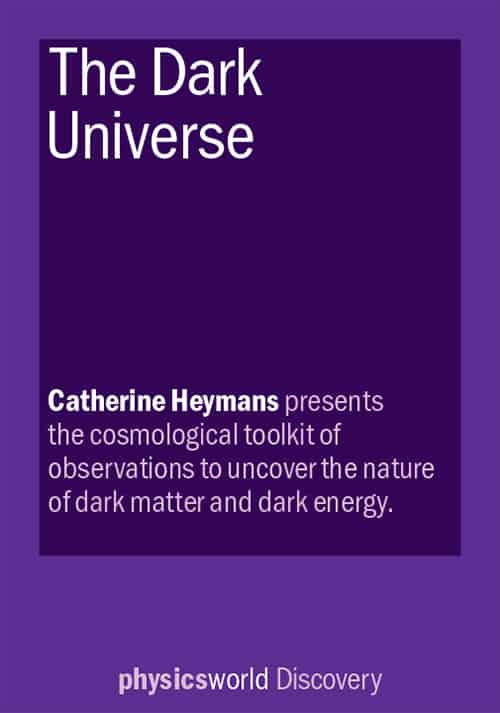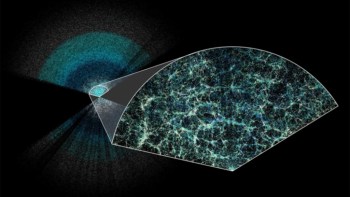
By Matin Durrani
It never ceases to amaze me that we know almost nothing about 95% of the universe. Sure, the consensus is that 25% is dark matter and the rest is something dubbed “dark energy”, but beyond that our knowledge is wafer thin.
The flip side, though, is that there’s plenty for physicists to get stuck into. And if you want to get up to speed with the field and find out more about some of its challenges, do check out a new free-to-read Physics World Discovery ebook by Catherine Heymans from the Royal Observatory, University of Edinburgh, UK.
Available in ePub, Kindle and PDF formats, The Dark Universe explains the dark enigma and examines “the cosmologist’s toolkit of observations and techniques that allow us to confront different theories on the dark universe”. And to get you in the mood for all things dark, I asked Heymans some questions about her life as a research scientist. Here’s what she had to say.
 What fact about the universe amazes you most?
What fact about the universe amazes you most?
The sheer scale of it all – the essential infinite enormity – contrasted with the realization that at one point, in the very distance past, everything we can see was all together – a very small point in space and time.
What gives you the biggest kick about being a research scientist?
Finding something out that no-one has ever thought about before. It’s so much fun.
What are you working on right now?
At the moment we’re using a telescope at the European Southern Observatory in Chile to build a very large-scale imaging survey called KiDS (the Kilo-Degree Survey). We’re using a technique called “weak gravitational lensing” to map out the dark matter and chart its evolution through time. My team in Edinburgh is focused on using these deep-sky observations to test whether we can explain the mysterious nature of dark energy by going beyond Einstein with our current theory of gravity.
How much progress can we expect in observational cosmology over the coming years?
The next decade is going to produce an avalanche of data from two brand new facilities; the Euclid space-based telescope and the Large-Survey Synoptic Telescope. Both these projects have a primary science goal to uncover the origin of dark energy – it’s certainly an exciting time for cosmology.
Does the mind-boggling size, mystery and awsomeness of the cosmos ever keep you awake at night?
Ha – if only! My three extremely raucous children have infinite energy and the ability to absorb any energy that I may have left after a day at the observatory. Nothing can keep me awake when I finally crawl into bed at the end of the day – not even the awesomeness of the cosmos!
• For more Physics World Discovery ebooks, visit physicsworlddiscovery.org.



